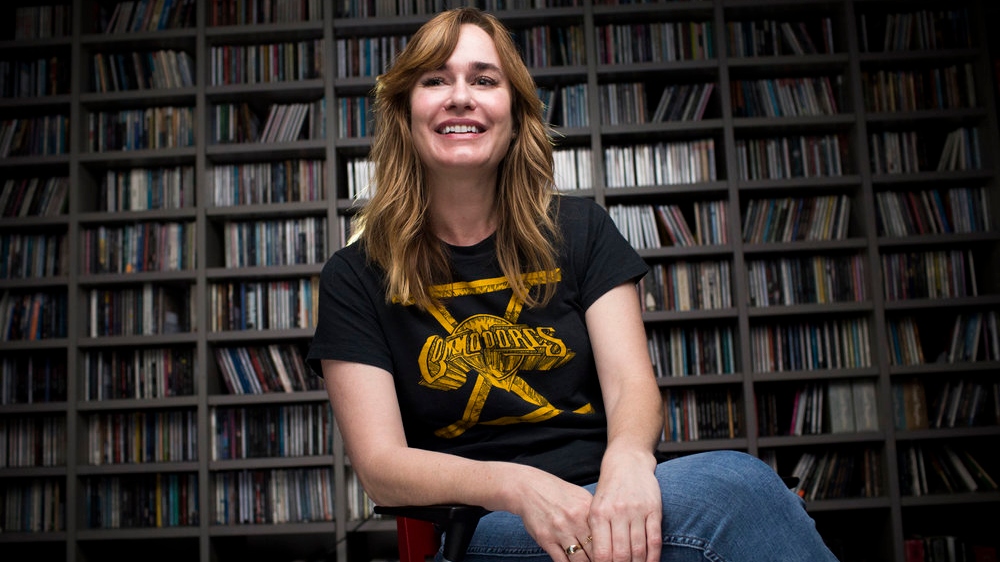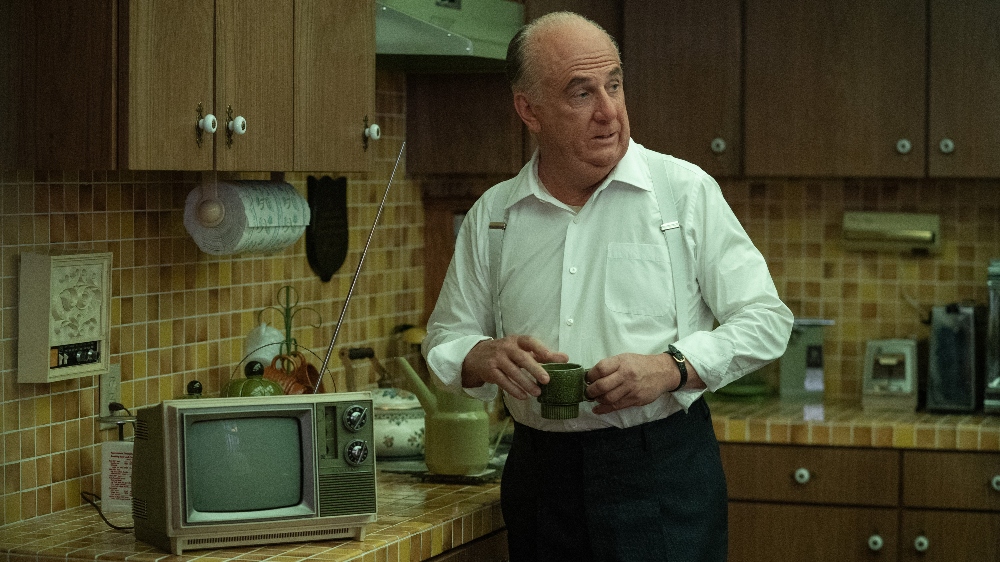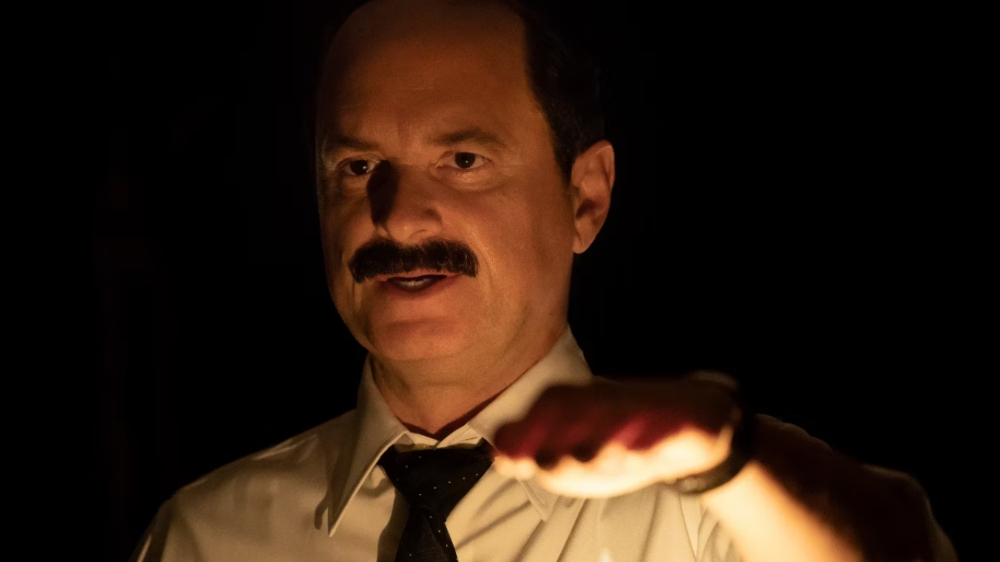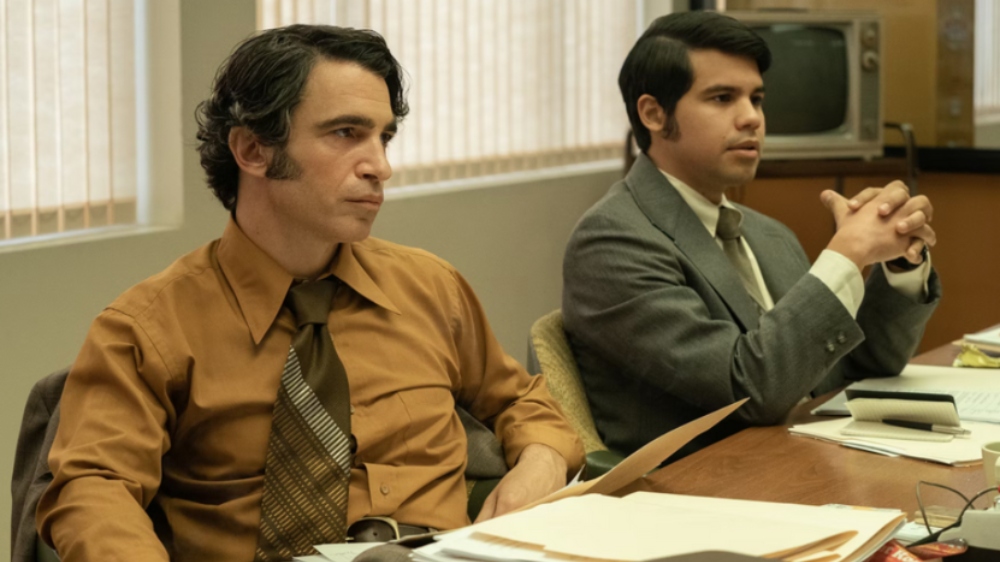Last spring, to mark the 50th anniversary of the notorious Watergate break-in and cover-up, Starz released its star-studded limited series Gaslit, which featured Oscar winners Sean Penn and Julia Roberts as John and Martha Mitchell.
Told from multiple points of view, Gaslit examined all of the key parties involved in the scandal, beginning with the planning and execution of the main event on June 17, 1972, and then following many individual plot threads in the harried aftermath, leading to the eventual resignation of President Richard Nixon on Aug. 9, 1974.
Responsible for telling Gaslit’s story through score and songs was Music Supervisor Maggie Phillips, who hails from Austin, Texas, but is currently based in Los Angeles. Phillips cut her teeth working with the Duplass brothers on some of their early films, and her feature credits also include the acclaimed films Moonlight, Ingrid Goes West, and Never Rarely Sometimes Always. Her TV credits are just as impressive between The Handmaid’s Tale, Fargo, The Great, Normal People, and Snowfall.
Below the Line recently spoke to Phillips, who explained her creative process in realizing the eight episodes of Gaslit, and how she worked within the show’s budget to find the perfect ’70s songs while managing never to distract from the show’s awards-worthy performances.

Below the Line: How did you first get affiliated with Gaslit and how was the concept initially described to you?
Maggie Phillips: Sam Esmail, the executive producer who I worked with on Homecoming and Mr. Robot, brought me in. I met with Robbie [Pickering, series creator, showrunner, and head writer] and Matt [Ross, executive producer and director of all episodes] for a little interview. Robbie first pitched to me regarding the creative aspects. He was thinking he would use more contemporary songs, and, in fact, some contemporary songs were scripted that we ended up not using. That’s not typically what I would suggest for a period piece, and I asked him why he wanted to do that. He had many goals for the show, and I think he achieved all of them, but he wanted it to feel very accessible to a younger audience — he didn’t want this to feel like a stuffy period piece that the kids wouldn’t enjoy.
When we got into post, and started putting songs to picture, it just didn’t work — it took people out of the scenes. It’s a very stylized choice, so if you’re going to go that stylized, you have to be aware that when you’re watching the scene, you’re going to be with a filmmaker; you’re not going to be with a story. It’s more of a commentary. I’m glad they didn’t go that route — I was a little apprehensive about it. You never know until you’re testing songs to picture what’s going to work.
BTL: Did Robbie and Matt communicate what type of music they wanted in the show with specificity?
Phillips: I’m always there to service someone else’s vision, and they’ve been picturing this for a couple of years. They’re able to translate [that] as well as possible [for] everyone who they’re collaborating with. Robbie had some really brilliant ideas and was successful in getting them across. He was collaborative — it was his first time showrunning. I’ve seen first-time showrunners come in and have a big ego, and [they] just wanted their way or the highway. But he came in and was super collaborative. Because of that, it came out really well. It started with the scripts — the scripts were fantastic; so much fun to read.

BTL: When episodes went into post-production, was it a scramble to get the period songs you needed?
Phillips: No, we had time because we shot all [the] episodes all at once, and we were editing these episodes for what felt like a really long time, so we didn’t have to scramble at all. We had to scramble towards the end when we had to deliver them all at the same time. We end the series with a contemporary song. We had a few options for that ending — one song was a Dolly Parton song that we really wanted, and it was actually denied. You’d be surprised — our budget was very small for a period piece, so the biggest challenge was being able to get all those period songs. There’s a lot of stuff that people aren’t going to recognize — songs that maybe you haven’t heard before but still feel period.
BTL: Are you and Robbie coming up with song ideas together, or are you bringing them to him?
Phillips: Early on, he sent me a playlist that he had been working with for [a] year while he was writing. Then, I expanded on that, so we had a general playlist of both of our ideas, and then it became about specific scenes and specific spots. For every scene and every spot, we sent over multiple playlists to try different options out, and we had to keep in mind the budget and scene. There were a few that Robbie had very specific ideas [about], and we just cleared them, but a lot [of songs] were up in the air.
BTL: Was there ever a point at which you said, “This song would be perfect, but it’s not in the budget,” and Robbie made a call and got the money for it?
Phillips: That didn’t happen in this project, but that definitely happens [on] other shows. There are some studios that are willing to make that a breakage. I don’t think we needed it [on Gaslit]. We were on top of the budget the whole time, and it was like a puzzle — the bigger spots have more expensive songs, and the smaller background spots had more of the cheaper stuff. It was challenging, but there weren’t a lot of disappointments.

BTL: What are your general budgetary expenses as music supervisor on this type of limited series?
Phillips: Licensing a song for TV costs between $5,000 and $100,000. A recognizable song for a TV show is going to be at least $40,000. Big bands with big songs would be more than that. Movies, you get a higher price too. We didn’t go super flashy with the music [in Gaslit]; we let the stars shine. It’s so well acted. We were economical with our choices and planned ahead. I was working with a reasonable showrunner and producers and [a] director who understood our financial limitations. Sometimes I’ll work with people who hear me explain the budget, but it doesn’t sink in. But I was working with reasonable people on Gaslit.
BTL: Did you have to do research to get songs that were originally released during that early ’70s period? As a music supervisor, you know music better than anybody, but did you have to still have to do a lot of research?
Phillips: Yeah, totally — and specifically for different spots too. That’s a part of my job — I love doing the research. I get to learn something new and discover bands; I like discovering new music. That’s why I love this job. I read articles and blogs, and I go on Reddit threads. You’ll get the nerdiest people on Reddit — people who really are, like, crazy connoisseurs, and you can find stuff… that’s how I find bands that most people don’t know about. Then, I just go down rabbit holes; one band will lead to another; one song will lead to another — I just dig. I know it’s not trendy right now to use Spotify, but it’s what I’ve been using for a while, so it’s easy for me. If [the discovery of a song] was a big spot, I’d probably just send [it] to Robbie on Spotify. But most of the time, we would send it to the editors as a placeholder, and they would cut it in, and then send [it to] Robbie for approval.

BTL: Are you sending the editors a digital music file that you receive from the music publisher?
Phillips: Yeah. We don’t get it from the publisher; I just purchase it, or I already have it in my library — I have a lot of songs in my library. If you have to ask the publisher, it takes too long, so I just think of it as one of my expenses, and I don’t get reimbursed by the production. I probably spend between $500 and $1000 on MP3s — for every spot, we send over 10 to 50 songs. When the song is selected, and we’ve cleared it, we get the high-res file from the publisher at that point.
BTL: Finally, is it always the publisher who approves of the song going into a show such as Gaslit?
Phillips: Every song has a different approval party. Sometimes it is the artist; sometimes, the artist [has] passed, and they have an estate that they deal with. Sometimes the [music publishers] have a deal where they’re able to approve without having to speak to the artist. It just depends on the deals, and they don’t tell us who their approval party is.
Gaslit is now available on Starz.





